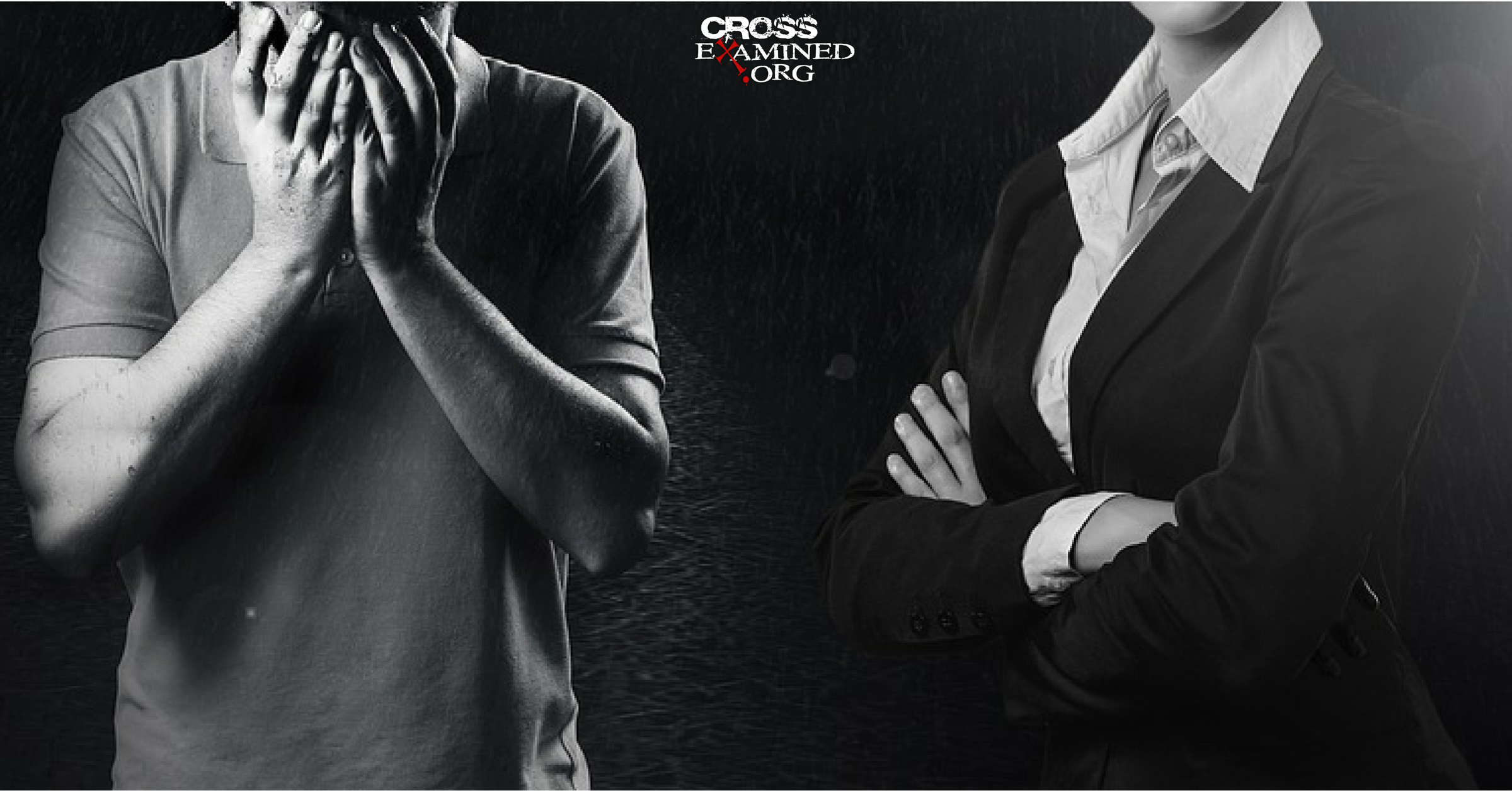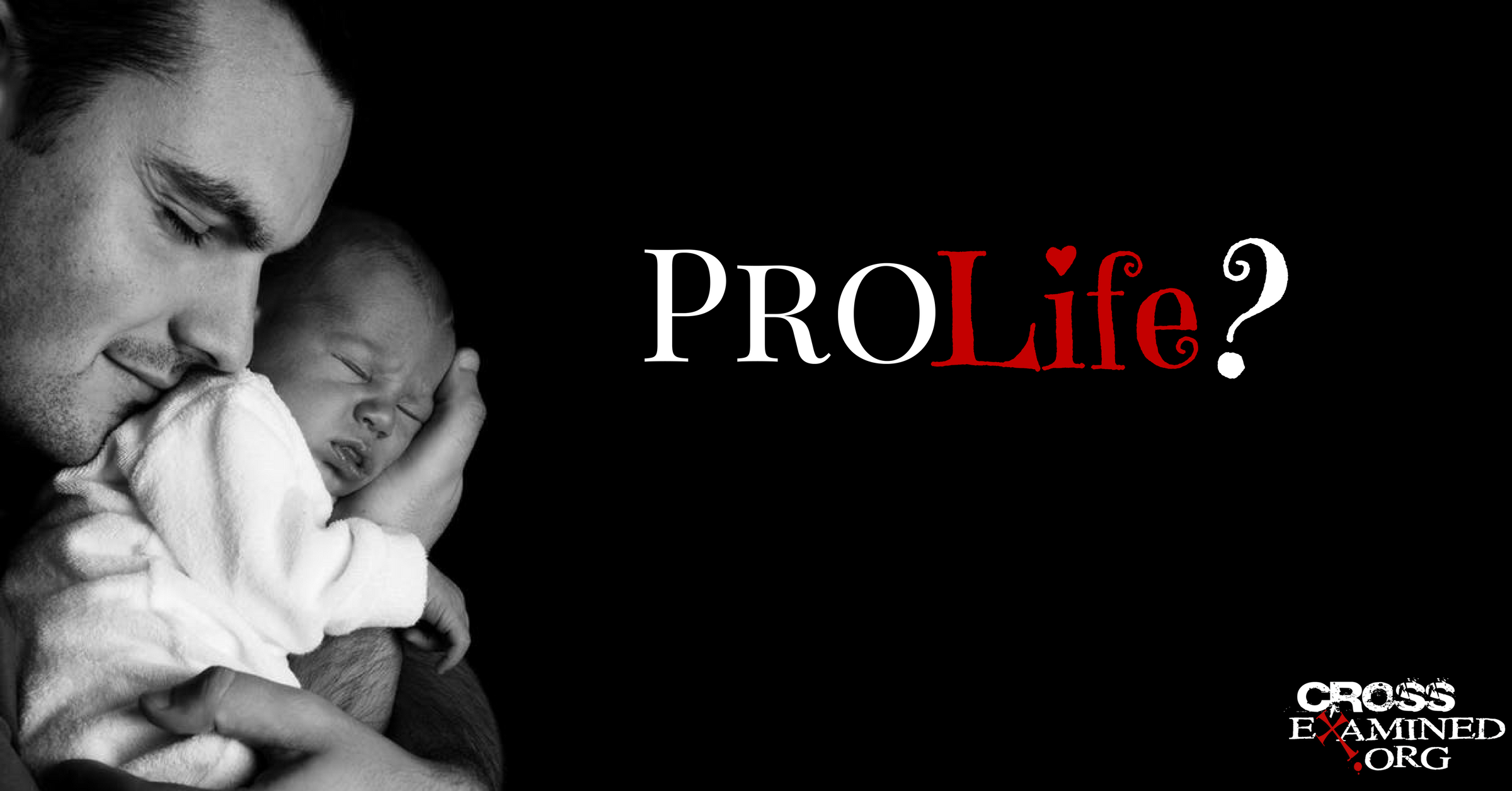By Tim Stratton
Question
Hey Tim,
A question from your fellow Nebraska Reasonable Faith chapter director! When discussing the Moral Argument with my Reasonable Faith chapter in Omaha, I received some pushback from one of our members, who just so happens to have his Ph.D. in meta-ethics. The objection he had to the Moral Argument was to the premise, “If God does not exist, then objective moral values and duties do not exist.” Erik Wielenberg, an atheist philosopher from DePauw University, proposes a model by which the atheist is able to hold to objective morality without the need for the existence of God. I’ll restate his model as best as I can (apologies for the long question, but there’s a lot to discuss).
Wielenberg proposes that there exists some of what he calls basic ethical facts. These are ethical facts that are metaphysically necessary, substantive (actually mean something and are not tautologous), and brute. Brute facts, according to Wielenberg, are facts that need not be explained in terms of other facts. An example of a basic ethical fact is the fact that causing pain for fun is intrinsically bad. This fact isn’t true in virtue of any other facts, but rather it just is the case that causing pain for fun is intrinsically bad. In other words, the fact that causing pain for fun is intrinsically bad needs no explanation.
Here is where I think Wielenberg has a good point. We as theists seem to hold to the existence of God as being a necessary, substantive, and brute fact. When he says that theists hold to the existence of God as being an example of this kind of fact, he is speaking in an ontological sense, not an epistemological one. Certainly, we can come to know the fact that God exists through explanations and other facts, but the truth of the fact of God’s existence is not dependent on other facts, thus making it a brute fact. So why does Wielenberg point this out? Well, his argumentative purpose in pointing to types of brute facts to which theists are committed is to show that the theist cannot consistently reject his (that is, Wielenberg’s) proposed means of accommodating objective morality in an atheistic worldview simply by rejecting the tenability of the existence of brute facts. With this in mind, Wielenberg sees no guiding principle as to which facts are brute and which ones require further explanation. They need to be examined on a case-by-case basis. If we accept his analysis of brute facts as correct, then it seems we need to give some sort of reason as to why ethical facts are facts in need of further explanation and cannot be considered brute. Because if ethical facts can just be considered as brute facts, then it seems atheism would have no trouble accounting for objective morality since it is false that these ethical facts need a foundation (because they’re brute).
Let me show you what I mean. As Christians, we might say that something is good because it approximates God’s nature. In saying this, we imply that we believe that the Good is God’s nature. If this is the case, then we seem to be positing a basic ethical fact: An action is considered good if it approximates God’s nature. We don’t have an explanation for why this is the case, but rather we simply seem to hold it as a brute fact! So, what’s the issue for the atheist then? If Christians are allowed to posit certain basic ethical facts that require no explanation, then it seems arbitrary to say that atheists cannot do the same when they posit basic ethical facts such as “causing pain for fun is morally wrong.” Both sides must posit these basic ethical facts that have no external foundation.
We could say something similar about moral obligations. As Christians, we might say that, if God commands you to do something, then you are morally obligated to do that thing. Well, why is this the case? It seems to me this fact has no explanation, and thus it is a brute fact. Why couldn’t the atheist merely posit a basic ethical fact that says “you ought not to do something that is morally wrong”? Both facts posited here by the theist and atheist have no external foundation, and thus both seem equally justified.
I know Dr. Craig will be debating Dr. Wielenberg on this very topic next year, but I thought we might get a head start on the conversation. Keep fighting the good fight brother! Thanks!
– Scott Olson
Tim’s Response
Hey Scott! It’s great to receive a fantastic question from a good friend (and a fellow RF Chapter leader)!
I am really looking forward to William Lane Craig’s interaction with Erik Wielenberg this February. I have not discussed this matter with Dr. Craig so I have no idea as to what “angle” he is going to take with Wielenberg. With that said, however (and with all due respect to Wielenberg), I think there are several problems with his proposed model.
“Need Not” vs Cannot
Regarding the claim that basic ethical facts and God share the same three properties — metaphysically necessary, substantive, and brute — is not accurate (or so it seems to me). This is because God is metaphysically necessary and simply CANNOT (as opposed to “need not”) be explained by other facts. However, as you noted, other facts like the premises in the Leibnizian Cosmological Argument demonstrate that a necessary being (God) must exist. Ethical facts seem to be necessary as well, however, if they are metaphysically necessary in all possible worlds, it seems that these facts CAN ONLY be explained by other facts — the existence of God and the purpose in which He created mankind. It is important to note that if one asserts that brute facts “need not” be explained by other facts, it does not logically follow that these facts cannot be explained by other facts (I will discuss these other facts below).
You noted that Wielenberg claims that,
An example of a basic ethical fact is the fact that causing pain for fun is intrinsically bad. This fact isn’t true in virtue of any other facts, but rather it just is the case that causing pain for fun is intrinsically bad. In other words, the fact that causing pain for fun is intrinsically bad needs no explanation.
I disagree! It seems to me that causing pain for fun is unloving; however, the question is raised: is it bad to be unloving? How would we ground this truth or come to know it is true if it is in fact true? The fact that it is bad (missing the mark of the purpose of human existence) to cause pain for fun is explained by other facts. The fact that causing pain for fun is bad, wrong, and/or evil is explained by the fact that God created humanity on purpose and for the specific purpose to love Him and all other people (from our neighbors to those who consider us enemies). Since causing pain for fun is definitely unloving, then causing pain for fun does not approximate to the objective purpose of the human existence (an objective truth about humanity irrespective of the subjective opinions from humanity). To a degree that a thing or being does not approximate to its objective purpose, then to that same degree that thing or being is objectively “bad.”
Actions can only really be good or bad in relation to an ultimate and objective purpose (this does not exist on atheism). So, it might be objectively true that torture causes pain; however, claiming that “causing pain for fun is bad” is nonsensical if life was not created on purpose and for a specific purpose. Namely, we were created to love our fellow man, not harm him.
So, if humanity was not created on purpose and for a specific purpose, then I contend that there are no objective ethical facts regarding human actions. Take homosexuality, for example. If Jesus is right, then God created human sexual relationships to specifically approximate to the following model: one man with one woman becoming one flesh for one lifetime (Matthew 19). Thus, it is objectively true that this is one of the specific purposes humans were created to follow. If one engages in homosexual actions — let alone gay marriage — then they are objectively wrong and “missing the mark” (sin). However, if God does not exist, then humans are accidental and there is no objective purpose of our existence or standard in which humanity was created to approximate.
If God did not create humanity to only have heterosexual relationships within the bonds of marriage, then there would be nothing objectively wrong with having premarital sex or any sexual relations outside the bonds of marriage. These sexual boundaries are only objective if God really did create humans to approximate to the one man with one woman becoming one flesh for one lifetime model of marriage that Jesus advocated. Humans are free to disagree with God, but they are subjectively disagreeing with the creator of humanity about the purpose and plan He had in mind for humanity. Thus, humans would only subjectively disagree with an objective purpose in which humans were actually created to attain.
Thus, if atheism is true, then there is nothing objectively wrong with anything — including homosexual marriage. With that said, however, it would also not be objectively wrong to persecute homosexuals (See A Biblical Argument for Gay Rights)!
It follows that when ISIS cuts the heads off of homosexuals, atheists, and Christians, these Muslims are opposing the objective purpose of human life and thus, they are objectively wrong. When the Nazis slaughtered Jews, the Nazis were not loving their fellow humans and thus, they were objectively bad. When white supremacists are violent to humans of another skin color or Antifa is violent towards those with different political ideas these groups are all objectively wrong and missing the objective mark and purpose of life. Since the objective purpose human life was created for is love, it is objectively evil not to love. That is easy to remember because LOVE backwards is EVOL.
Consider the following argument:
- If a truth corresponds to reality, it is objectively true [apart from human opinion].
2. If God created humanity for a purpose, then this purpose is a truth that corresponds to reality.
3. Therefore, if God created humanity for a purpose, then this purpose is objectively true.
4. God created humanity for a purpose. [To Love God and all people]
5. Therefore, God’s purpose for creating humanity is objectively true [apart from human opinion].
It follows from this argument that if one acts in a manner that is not loving toward God and all people, then they are objectively wrong in their behavior. They are not approximating to the objective purpose of life and are thus, “bad” and “missing the objective mark” (a.k.a., sin).
On Purpose & For a Purpose
Now, if God does not exist, then life was not created on purpose or for any specific purpose. Thus, on an atheistic worldview, there is no objective purpose to the existence of humanity, and thus, there is nothing really good, bad, right, or wrong — let alone evil — with any manner in which one chooses to behave toward his fellow man or woman. There is no objective plan, purpose, or goal about humanity in which humans have a choice to approximate or not.
You noted that,
If we accept his analysis of brute facts as correct, then it seems we need to give some sort of reason as to why ethical facts are facts in need of further explanation and cannot be considered brute
I do not accept his analysis of brute facts as correct, but even if I did, ethical facts make no sense to postulate apart from a design plan or purpose of mankind which is true irrespective of the subjective opinions offered from mankind. Ethical facts are necessary in that they are grounded in the nature of a necessary being in which any possible world — including the actual world — is contingent. Moreover, if God created this world and all humanity on purpose and for the specific purpose of love, then it is true apart from a human subjective opinion that humans ought to love one another. After all, this would be the reason humans exist.
You pointed out that,
As Christians, we might say that, if God commands you to do something, then you are morally obligated to do that thing. Well, why is this the case? It seems to me this fact has no explanation, and thus it is a brute fact.
Some Christians “might say” this kind of thing, but I do not. Well, I am sure I probably have said similar things in the past, but if I am being careful to articulate my views clearly, then I contend that something is objectively good for a human if it approximates to the objective purpose of human existence. This objective purpose of the human existence must be up to something external to humanity, and thus, cannot be up to humanity. Thus, this fact does have an explanation! Moreover, it stands to reason that a perfectly intelligent and loving being would only issue commands to humanity that approximate to God’s loving purpose for creating humanity (which is a purpose true apart from the human opinion). Thus, although we have the freedom to disobey God’s commands since God has eternal human flourishing in mind, we ought to choose to approximate to His commands.
However, God gives us the freedom to choose not to flourish. This brings me to my final point:
An Eternal “Or Else!”
If atheism is true (and human persons are not immaterial and eternal souls), then all humans ultimately share the same fate. If this is the case, why should it matter if one chooses to live like Mother Theresa or Hitler — like Gandhi or Ted Bundy? If atheism is true, each one of those individuals is equal in that none of them are experiencing any punishment or benefit for choosing to approximate to any supposed moral brute facts in the absence of God. In fact, it could be argued that Hitler and Bundy experienced more physical pleasures during their lives than Mother Theresa or Gandhi. If all people always share the same ultimate fate, then why should anyone care how they live on earth. Why should Hitler and Bundy not “go for the gusto”?
Jesus offered a big “or else” to humanity! If one does not wish to live according to the Law of Christ and God’s purpose for humanity — to always love all people — they are free to spend eternity apart from God’s loving plan. They are free to do things their own way for eternity. Jesus referred to this state of affairs as hell.
If Wielenberg’s view were true — even if it could account for abstract objective moral values — why should anyone care? So what if some things are objectively wrong to do? We are all just going to die anyway! And who cares about legacy either? Eventually, the entire universe is going to suffer a cosmic heat death (there will be no heat, light, or life anywhere in the entire universe) and ultimately “no one will remember your name” or any of your supposed moral actions you performed. In the end, this atheistic attempt to desperately account for objective morality is fairly useless. After all, what good is a moral theory if one has no reason to act morally?
Conclusion
So, to recap, it seems to me that there are at least three problems with Wielneberg’s model. First, the assertion that one “need not” provide an explanation does not entail that one cannot provide an explanation. Second, if God exists and created humanity on purpose and for a specific purpose, then this purpose would logically ground human actions as objectively good or bad. Atheists have no access to this foundation. Third, on Christian theism, Jesus provides an eternal “or else,” which provides an additional reason to approximate to the Law of Christ.
I just do not see how Wielenberg’s view is tenable if humans are accidental and that it is not a fact of the matter that humans were created for the purpose of love and flourishing. There is no objective standard about human existence in which we were created to approximate if atheism is true. There is no such thing as “missing the mark” or the objective purpose of our existence. On atheism there is no objective purpose — and that is why there is nothing really wrong with homosexuality or anything else if God did not create humanity on purpose and for a specific purpose.
Thus, on Wielenberg’s view, the phrase, “causing pain for fun is intrinsically bad,” is metaphysically meaningless. This is due to the fact that on atheism, “bad,” does not have any real meaning in a logically broad sense. If God did not create humanity on purpose or for a specific purpose, then one cannot logically claim that causing pain for fun is “bad” or “wrong,” because there is no objective purpose to the human existence in which causing pain for fun does not approximate. The reason Wielenberg’s view is useless is because phrases like, “causing pain for fun is bad and wrong,” are vacuous. On atheism, these claims literally mean nothing!
Thanks for the great question, Scott! I hope to see you in Rhode Island at the next Reasonable Faith chapter director annual meeting. If not, I am only a three-hour drive away!
Your friend and brother in Christ,
Tim
Original Blog Post: http://bit.ly/2zWlVCq










